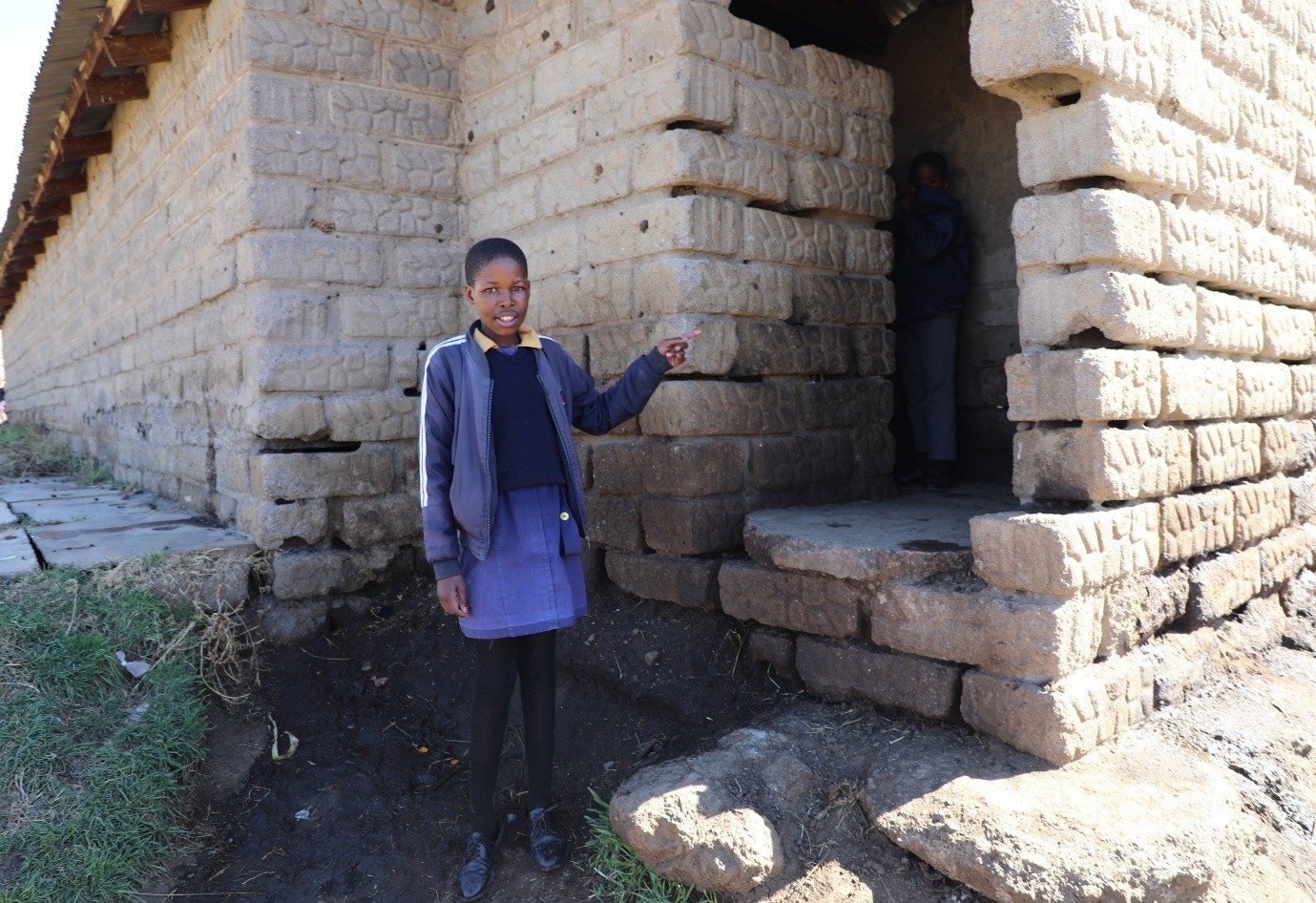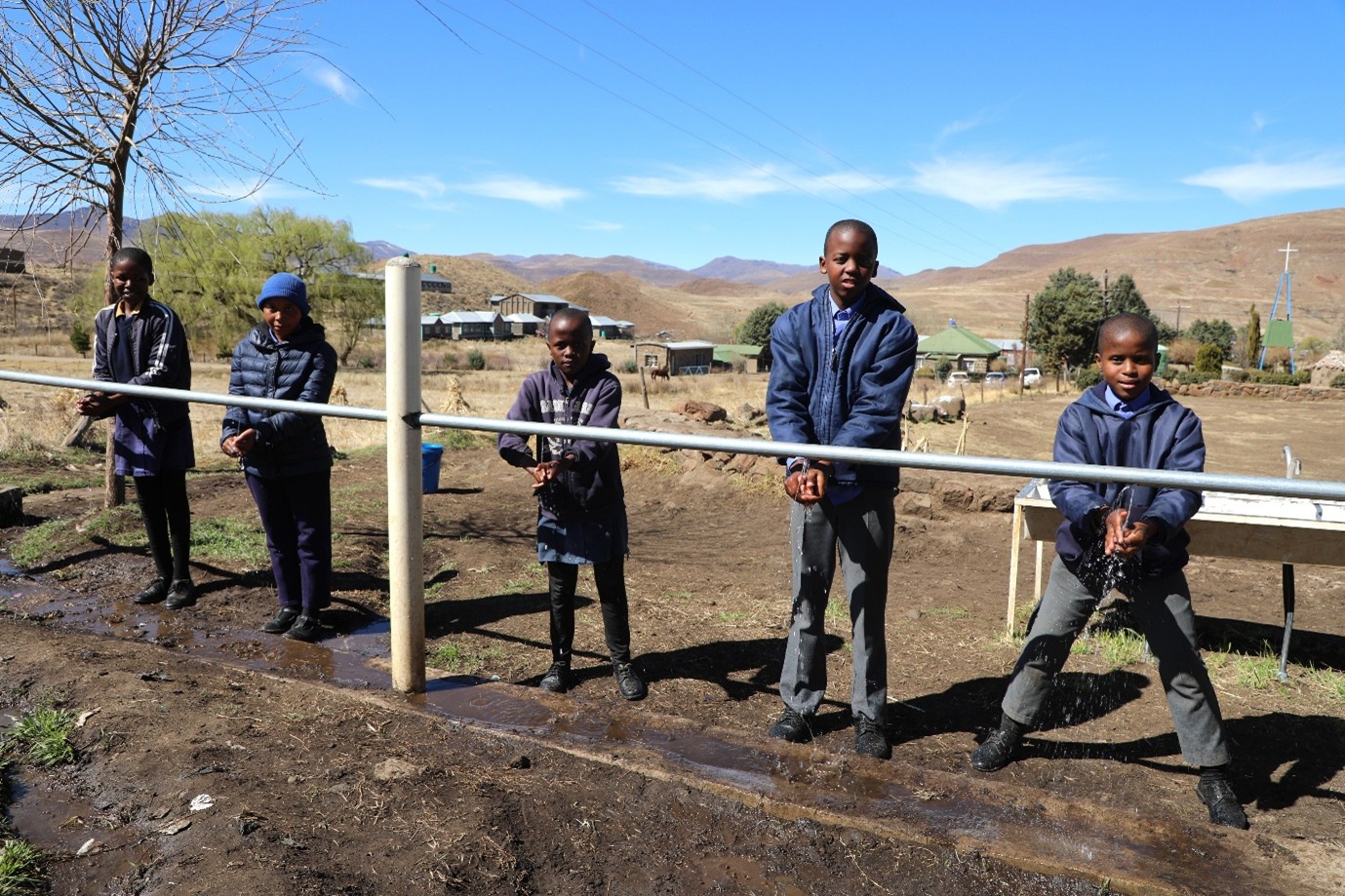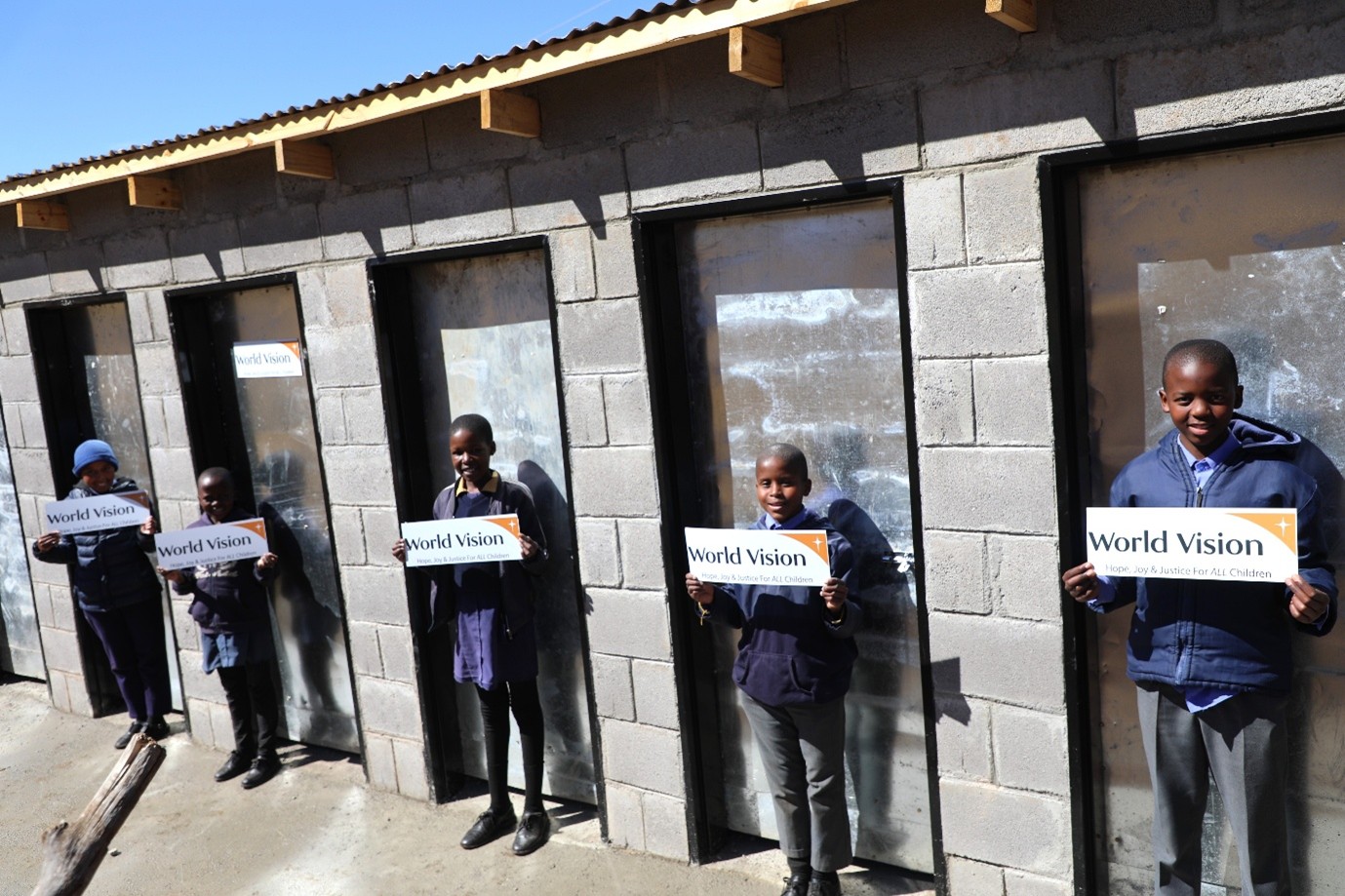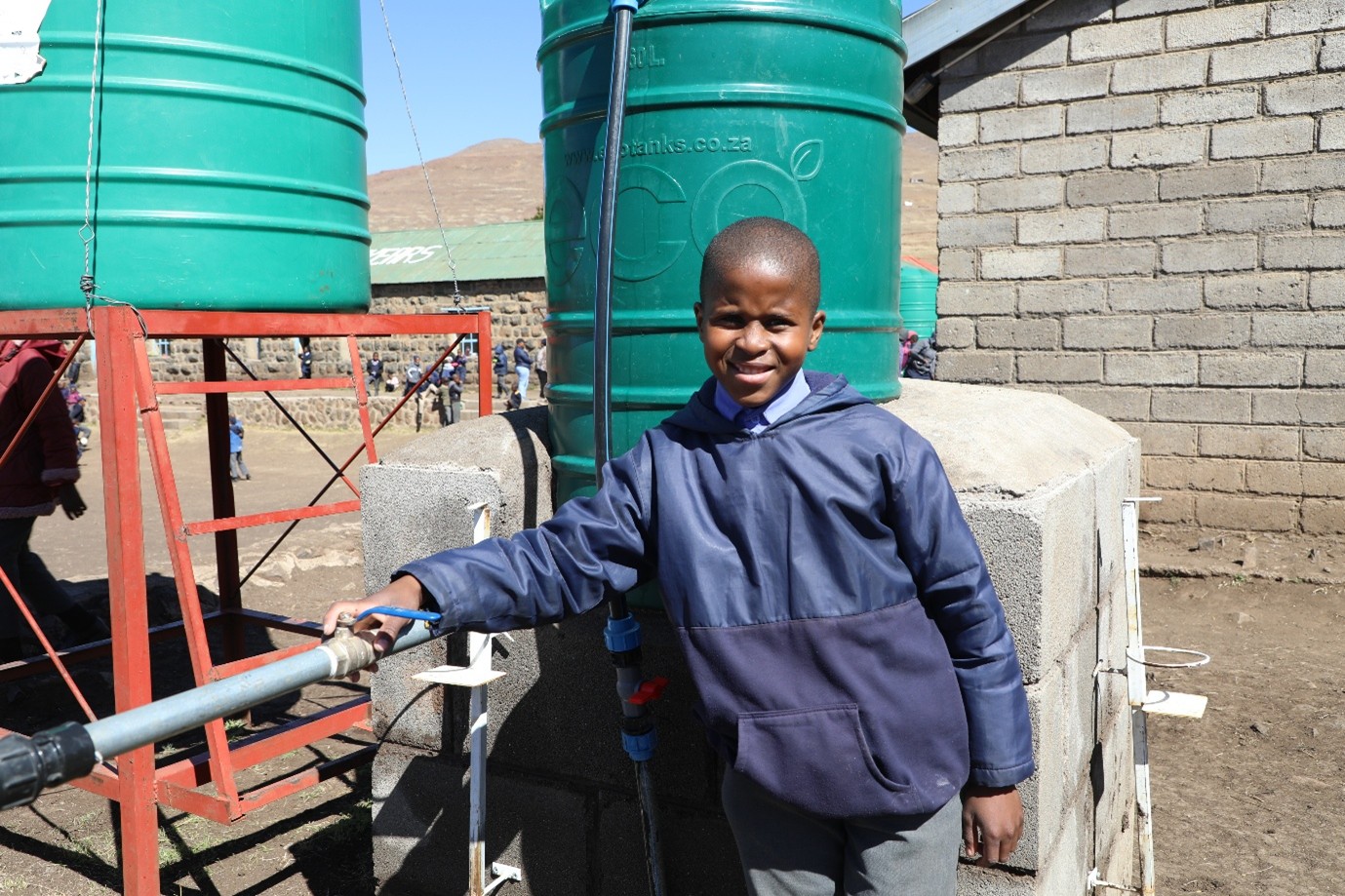How Clean Water and Sanitation Opened the Door to Learning at St James Primary School
By: Reentseng Phephetho, Communications and Digital Officer, Lesotho
For children, school should be a place of joy, growth, and opportunity. Yet, for many learners across the world, the absence of basic water, sanitation, and hygiene (WASH) services stands as a hidden barrier to education. Globally, over 1,000 children die every day from diseases caused by unsafe water and poor hygiene. Behind these numbers are real children whose health, dignity, and dreams are put at risk.
At St. James Primary School in Mokhotlong district, these challenges were all too real. Learners faced immense difficulties accessing clean water and safe sanitation, problems that affected their health, attendance, and even their will to learn.
The Water Challenge
“Sometimes we had to wait a long time just to drink water.." - Thlokomelo, 13
Water at St. James was scarce. A single tap, open only at scheduled times, provided just enough for drinking. Washing hands or cleaning lunch boxes was considered a luxury. “Sometimes we had to wait a long time just to drink water, and even then, it was not enough, and this made me not want to come to school at all. “Recalled Tlhokomelo, 13. Without water, hygiene suffered. Dirty lunch boxes, unwashed hands after using the toilets, and exposure to infections were everyday realities.
Students like Tlhokomelo faced not just illness, but a constant worry that kept them from focusing on learning. Without water, hygiene suffered; learners ate from dirty lunch boxes, unable to wash them before meals. After using the toilets, they could not wash their hands, exposing them to infections. “This was not good hygiene practice, and it worried me a lot,” Tlhokomelo added.
The Sanitation Crisis

If water was a scarcity, then toilets were disheartening; unsafe and undignified. Old, overcrowded structures offered little privacy, especially for girls during menstruation. Each visit became a source of fear and humiliation. “Every time I had to go to a toilet, I became scared; what if it falls on me?” said Ntebaleng, 13. Many girls chose to stay home rather than face the discomfort and lack of privacy at school. The lack of proper toilets compromised not only health but also human dignity and equality, creating barriers to education for all learners, particularly girls.
A turning point for St James Primary
Through its WASH programme, World Vision Lesotho embarked on a life changing initiative in 2025 to install a reliable handwashing facility and build brand-new toilets for boys and girls.
“Now we can eat from clean lunch boxes and wash our hands after using the toilets,” - Tlhokomelo, 13

The impact was immediate: clean water was available throughout the day, and learners could wash hands regularly. “Now we can eat from clean lunch boxes and wash our hands after using the toilets,” said Tlhokomelo. Attendance rose, and children felt safer and cared for.
“I am really excited because I now have privacy, especially during my menstrual period.” - Pono, 12

For girls, the new toilets were life changing. Pono, 12, shared, “I am really excited because I now have privacy, especially during my menstrual period.” The new facilities, combined with planned sanitary bins, ensure dignity and proper menstrual hygiene management for all girls.
Children taking ownership

The transformation inspired responsibility among learners. Students now lead cleaning routines and educate peers on proper use, ensuring the new facilities remain safe and hygienic. “I feel it is my responsibility to take care of these toilets for our health,” said Tlhokomelo. This sense of ownership reflects how deeply children value access to WASH services.
I feel it is my responsibility to take care of these toilets for our health." - Tlhokomelo, 13
A brighter future unlocked
Access to clean water and safe sanitation has transformed school life. Meals are eaten from clean lunch boxes, hands are washed regularly, and the anxiety of unsafe facilities is gone. “Now, our school is a place of joy. We can learn without fear,” said Pono with a proud smile.
At its heart, this story is about more than toilets and taps; it is about restoring dignity, promoting equality, and unlocking every child’s potential. The transformation aligns with Sustainable Development Goal 6: Clean Water and Sanitation for All, demonstrating World Vision’s commitment to ensuring every child, even in the most remote areas, can learn, thrive, and pursue their dreams. St. James Primary now stands as a living testament to how something as simple as water and toilets can open doors to education, hope, and a brighter future.
“Now, our school is a place of joy. We can learn without fear,” - Pono, 12